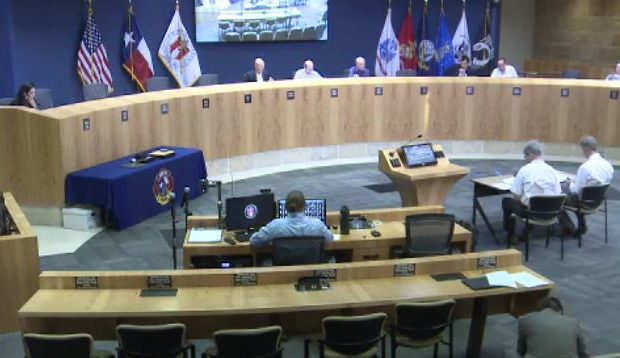Commissioners question right of appeal under CodeNEXT
Tuesday, November 14, 2017 by
Joseph Caterine In a presentation at the joint land use commission meeting on Nov. 7, city staff claimed that clarifications made to the right to appeal under CodeNEXT draft two would improve the process for the city and appellants alike, but some commissioners contradicted that characterization and said the changes would actually narrow the power of appeal.
One of the top priorities for drafters of CodeNEXT has been to streamline unwieldy or lengthy aspects of both the permitting and review processes related to land use. Every year as the city grows, the Board of Adjustment bears more of that deluge, hearing an ever-increasing number of appeals for alleged errors made by city staff.
Planning and Zoning Director Greg Guernsey said at the meeting that the second draft of CodeNEXT seeks to alleviate some of the burden on the board by articulating when city staff can preemptively reject unqualified appeals before they reach the board. Board of Adjustment Chair William Burkhardt, who also sits as an ex officio member on the Planning Commission, said that he feared the measure went too far and could result in the Development Services Department director acting as a gatekeeper, governing who has a right to appeal. In his opinion, that expanded authority overstepped state law.
On the contrary, assistant city attorney Brent Lloyd said that he believed CodeNEXT complied with Texas law. “The courts have recognized that cities have the authority to set up procedures by which appeals are filed, and (that’s what) this code attempts to do,” he said.
Development Services staff already rejects appeals based on failure to meet deadlines or other basic requirements; CodeNEXT is only memorializing current practice and setting more straightforward guidelines, Lloyd said.
The debate was not limited to who could judge what constituted an appeal, however, but also who could file an appeal in the first place. Zoning and Platting Commissioner Ann Denkler said that in the existing code, there is language that describes who can be an interested party in order to file an appeal, but that parts of that definition were missing from CodeNEXT. “I’m not seeing expanded or clearer authority (of appeals) here, I’m seeing less,” Denkler said.
On the contrary, Lloyd said that the current definition sent mixed messages to the public and imposed unnecessary constraints on those wishing to claim the role of an interested party. “For purposes of appealing a building permit, you would have to submit comments on the application before the permit is issued,” he said, as an example. “That would be an untenable requirement. It’s not a requirement that staff applies, and it’s a requirement that’s taken out of (CodeNEXT).”
Lloyd told the Austin Monitor that the administration and procedures chapter of CodeNEXT was still a work in progress, and that there were still tweaks that should be made. “I think when draft three comes out, it will be responsive to some of the (commissioners’) concerns, but I think there will be continuing areas of disagreement on certain issues,” he said in a phone call.
The third draft is scheduled for release on Nov. 28.
The Austin Monitor’s work is made possible by donations from the community. Though our reporting covers donors from time to time, we are careful to keep business and editorial efforts separate while maintaining transparency. A complete list of donors is available here, and our code of ethics is explained here.
You're a community leader
And we’re honored you look to us for serious, in-depth news. You know a strong community needs local and dedicated watchdog reporting. We’re here for you and that won’t change. Now will you take the powerful next step and support our nonprofit news organization?






